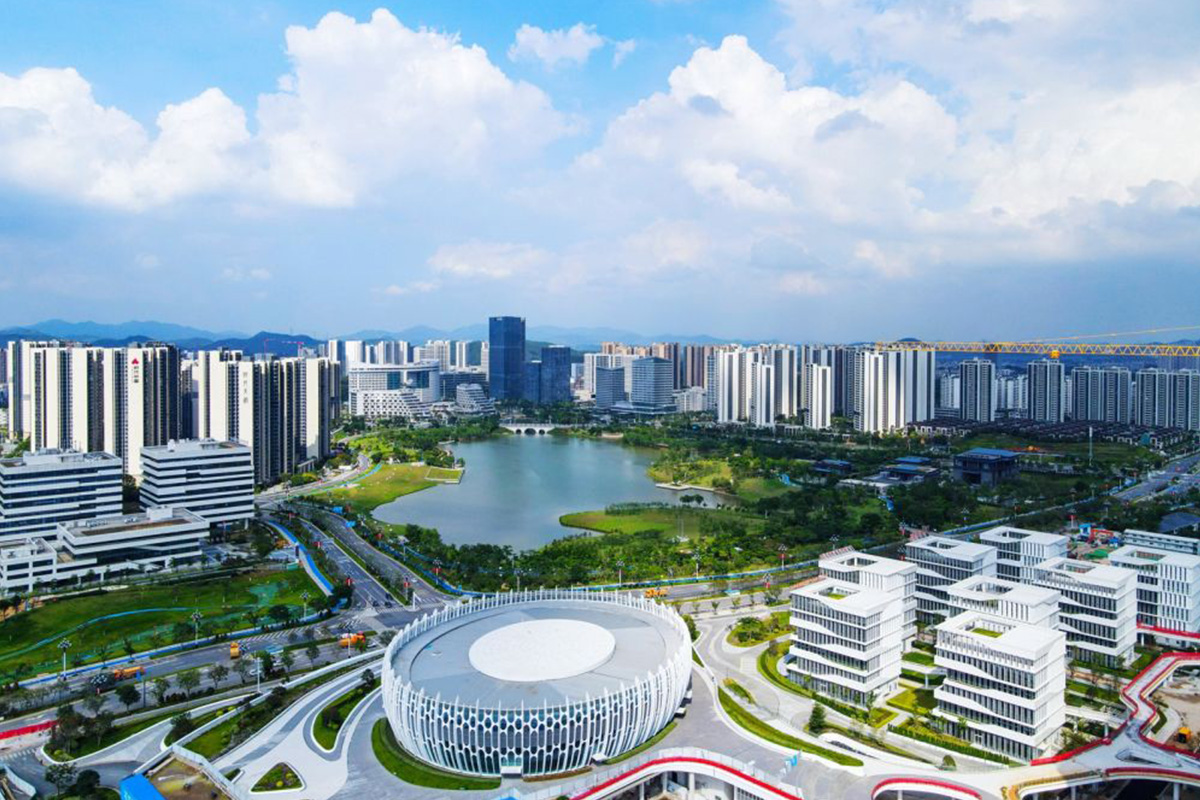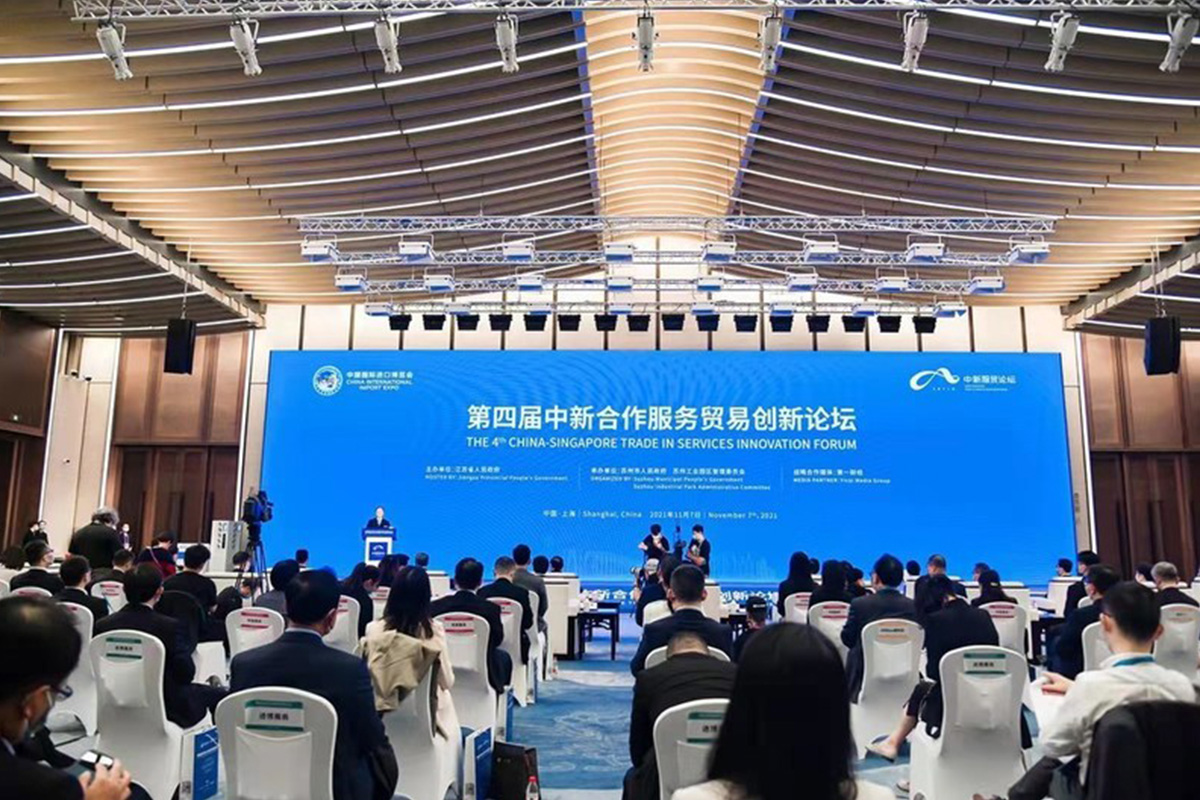On November 1, the 18th China-Singapore Joint Council for Bilateral Cooperation (JCBC) kicked off in Singapore. The meeting resulted in the signing of 19 Memoranda of Understanding (MOUs) and cooperation agreements, including the MOU on Developing a Cooperation Framework to Promote Singapore Companies’ Participation in the China-Singapore Guangzhou Knowledge City (CSGKS)’s Industrial Development and Innovation. The meeting also provided a promising path for the future development of the CSGKS located in the Guangdong-Hong Kong-Macao Greater Bay Area.
A commission official of CSGKS Cooperation Affairs Office said, the signing of the MOU will contribute the CSGKS to attract more innovative high-tech enterprises from Singapore and other countries, further deepen the cooperation with Singapore in the field of scientific and technological innovation, support Singaporean enterprises in participating fully in the industrial development and innovation of the CSGKS, and polish the CSGKS as the preferred place for Singapore enterprises to invest.
The China-Singapore International Joint Research Institute, which aims to build an important platform for China–Singapore cooperation and achievements transformation of scientific and technological innovation, has drawn on the experience and system of Singapore’s industry-university-research integration and formulated nine industrialization systems, including the implementation rules of intellectual property support policies and several regulations on encouraging innovation and entrepreneurship. It has attracted a group of international high-level talents represented by Nanyang Technological University of Singapore to set up projects in the institute, and promoted the achievements transformation.
The Regulations on CSGKC of Guangdong Province, which came into force on March 1 this year, delegated the authority of national and provincial economic construction management to the Management Committee of CSGKS through legislation, which has made remarkable achievements in China–Singapore state-level bilateral cooperation projects.
In June this year, the China-Singapore Smart Park, one of the key projects to deepen cooperation in scientific and technological innovation and the construction of smart cities, was officially opened with a total investment of 1.4 billion yuan. It has introduced more than 60 industrialization projects such as NCS Greater Bay Area Fintech Delivery Center, SP Group, Guangzhou Lion TCR, Star 3D Oral digital Medicine, etc.
Meanwhile, as a carrier of industrial innovation jointly built by China and Singapore, Ascendas OneHub GKC’s Phase I Industrial Park has housed more than 400 enterprises and employed 3,000 people. The Guangzhou Innovation Institute of National University of Singapore is about to recruit students, commit itself to training nearly 3,000 high-level talents over a 10-year period, and shoot for becoming the largest comprehensive flagship project of the National University of Singapore in China.
In recent years, cooperation projects between China and Singapore in key areas such as biomedicine, digital economy and green development have been launched in the CSGKS:
- In terms of biomedicine, Biosyngen has built the largest commercial production base of immunocellular drugs in South China; Lion TCR (Singapore), the world’s leading TCR-T cell therapy company, plans to build a GMP cell production base and serve as the company’s headquarters in China.
- In terms of digital economy, NCS, the wholly-owned subsidiary of Singapore Telecom, selected the CSGKS to set up the Greater Bay Area Fintech Delivery Center and the first phase has started operation, which is expected that 500 IT professionals will be stationed at the end of the year to accelerate the development of 5G, digital twins, blockchain and other technologies and build a cross-border innovation ecosystem.
- In terms of green development, the agreement was signed with SP Group to implement the investment, construction and operation of regional energy projects (including cooling and heating), starting from the Knowledge Tower project, and gradually promote them to other regions such as the China-Singapore International Scientific and Technological Innovation Cooperation Demonstration Zone.
- In terms of financial services, the MOU of cooperation was signed with the Singapore Exchange to promote the issuance of green bonds by three state-owned enterprises, with a cumulative issuance scale of US $1.34 billion, and deepen the connectivity with the international financial market.
As an important carrier and innovation model of bilateral cooperation between China and Singapore, the CSGKC strives to build an important node in the GBA and become the world’s knowledge economy highland. In the future, the CSGKC will further integrate development strategies of the Belt and Road Initiative and RCEP, continue to improve the level of institutional opening up, deepen cooperation in the digital economy and green development with Singapore, tap the potential of ASEAN countries and other markets, and show the world more new international cooperation programs and prospects full of Chinese wisdom.



